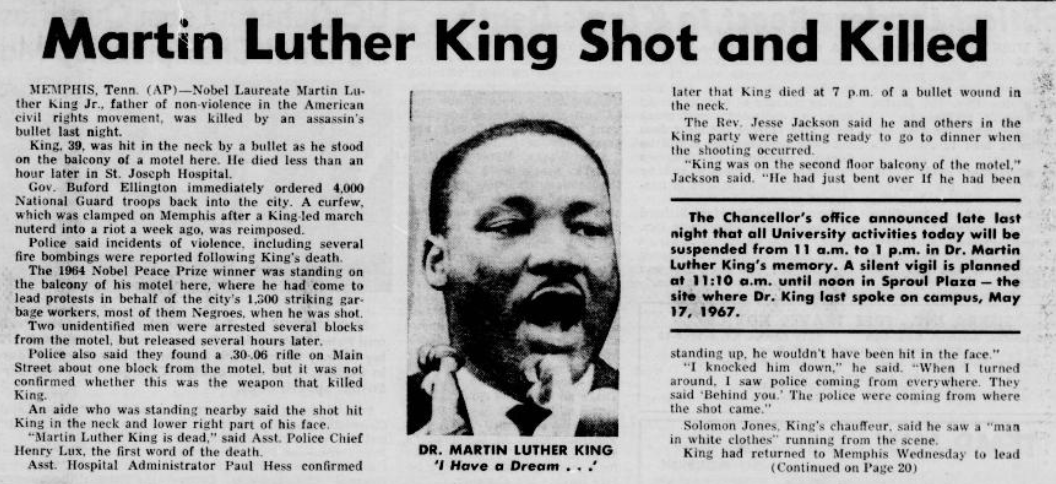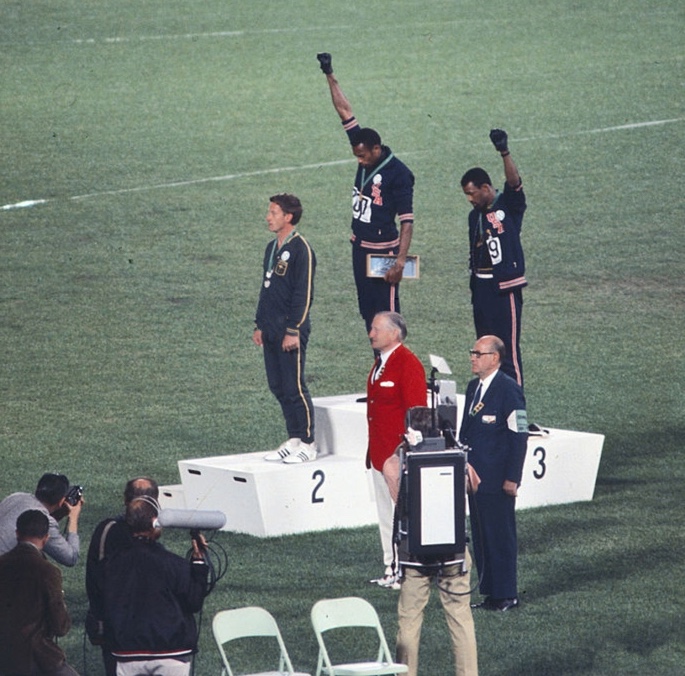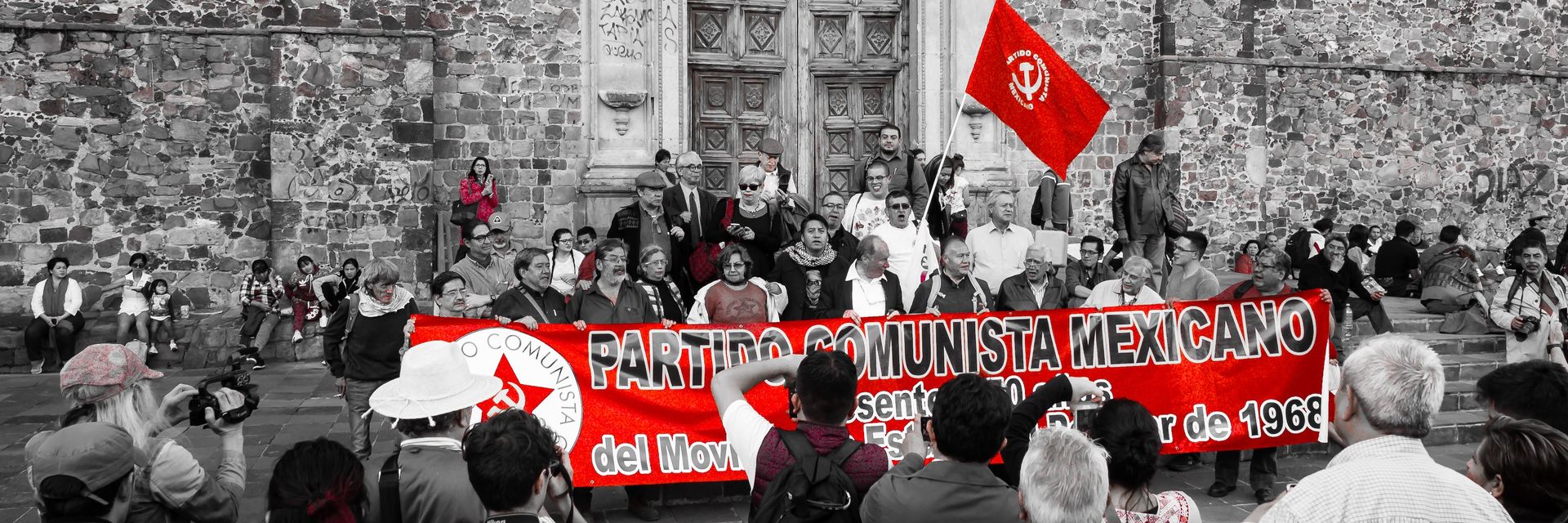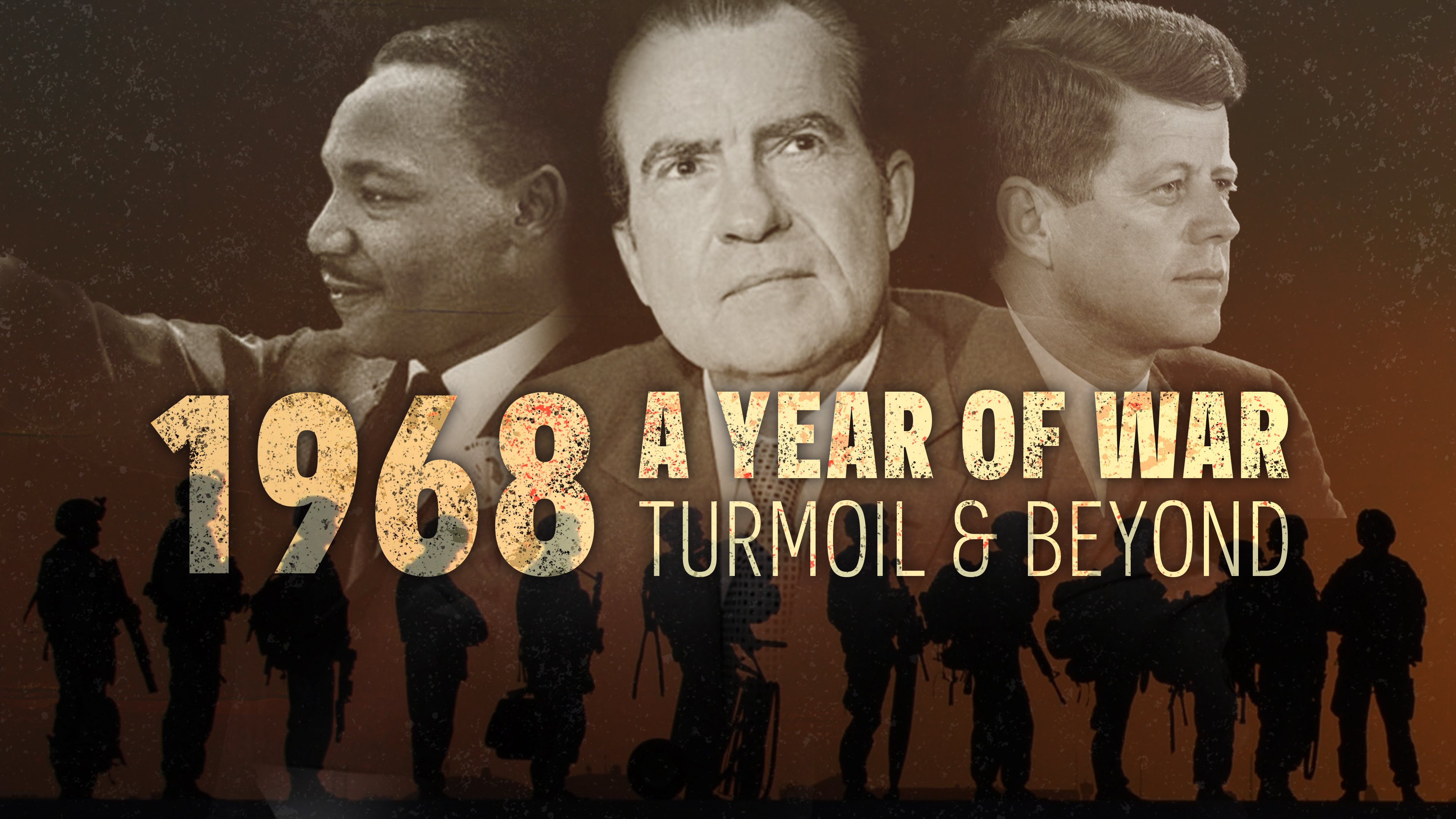The turbulence of the Sixties came to a head in the incredible year of 1968.
◊
Living in a time of rapid technological and social change along with political and economic turmoil on an international scale, it’s easy to lose sight of similar tumultuous eras within the lifetimes of many still alive today. The late 1960s and early 1970s were such a period, with one year in particular, 1968, chock full of startling and often distressing events that played out on the TV news every evening.
For a more comprehensive view of that crazy year, check out this MagellanTV documentary.
It is perhaps impossible to compile a comprehensive list of all of the historic and otherwise memorable events of that year, but here are seven that stand out:
1. The Tet Offensive (January–February 1968): This coordinated surprise attack by the North Vietnamese and Viet Cong on more than 100 cities and towns in South Vietnam was a significant escalation of the Vietnam War. Despite U.S. and South Vietnamese success in repelling the attacks, public perception shifted and opposition to the war increased.
2. The Prague Spring (January–August 1968): A brief period of political liberalization in Czechoslovakia, which sought to create “socialism with a human face,” abruptly ended when the Soviet Union invaded its Warsaw Pact ally, brutally crushing the reforms, arresting the leaders, and reinstating hardline communist control.
3. Student Protests Worldwide: Marching with bright banners and Che Guevara posters, large-scale student protests erupted around the world throughout the year. Notable events occurred in France, the United States, the United Kingdom, Mexico, and many other countries. Some, such as those in Paris, were characterized by demands for political, educational, and social reforms, while others vented fury at the Vietnam War.

(Credit: The Daily Californian, via Wikimedia Commons)
4. The Assassination of Martin Luther King, Jr. (April 4, 1968): The murder of America’s greatest civil rights leader in Memphis, Tennessee, by James Earl Ray led to nationwide riots in over 100 cities and marked a pivotal moment in the increasingly militant Civil Rights Movement, highlighting America’s ongoing struggle with racial injustice. Dr. King would eventually be memorialized by a national holiday honoring his birthday.
5. The Assassination of Robert F. Kennedy (June 5, 1968): Shortly after winning the California presidential primary, Senator Robert F. Kennedy, a leading candidate for the Democratic nomination, was murdered in Los Angeles by Sirhan Sirhan. Coming less than five years after the assassination of his brother President John F. Kennedy, and just two months after the murder of Dr. Martin Luther King, Jr., this tragic event deeply shocked the nation and powerfully affected American politics and the Kennedy family legacy.
6. The Democratic National Convention (August 26–29, 1968): When the Democratic Party gathered in Chicago for its quadrennial convention to nominate a candidate for the U.S. presidency, the spectacle of violent clashes between demonstrators and Chicago police likely damaged the Party’s prospects in the upcoming general election (which it lost). Protesters chanted, “The whole world is watching” – indeed, it was.

Tommie Smith (gold medal, center) and John Carlos (bronze medal, right) raise their fists at 1969 Olympics medal ceremony. (Credit: Angelo Cozzi, via Wikimedia Commons)
7. The Mexico City Olympic Games (October 12–27, 1968): This athletic extravaganza was meant to be remembered for the speed, strength, grace, and skill of its participating athletes. But they are likely remembered more for the Black Power salute offered up by two African Americans, Tommie Smith and John Carlos, during the medal ceremony for the men’s 200-meter sprint. It’s hard to look back now without feeling that their powerful statement fittingly symbolized an incredible year.
Ω


